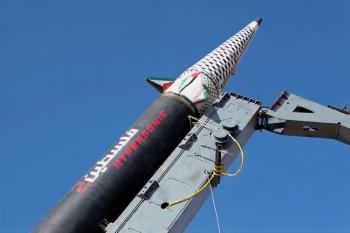Alwaght- It has been nearly a month that the Russian air force has begun its air strikes against terrorists in Syria; meanwhile, the Resistance forces have also begun to launch ground attacks against the terrorists. The rapid advance of the allied forces in different parts of the country has been a serious cause of concern for supporters of the armed groups especially Qatar, Turkey, Saudi and the United States. In an attempt to prevent the success of the axis of Moscow and Tehran, these countries continue to provide the terrorists with modern weapons which could lead to more complication of the Syrian conflict.
Reports indicate an increase in shipment of advanced weapons to armed groups in Syria. Charles Lister, a senior researcher at the Brookings Institution in Doha, Qatar, which has close ties with the leaders of such groups in Syria, in a report quoted the field sources including Col. Ahmad al-Saud and the commanders of three CIA-backed opposition groups as saying that recently the opposition forces have received more TOW missiles which significantly increase their power. This is not the first time that the TOW missiles designed for armor-piercing operations are dispatched to terrorist groups in Syria. In the past two years, there were pictures depicting the TOW missiles at the hands of terrorist groups, including al-Nusra Front, the Syrian branch of al-Qaida. What is important and may be of concern to the Russians, is the fact that terrorist groups in Syria may get anti-aircraft shoulder-fired weapons and surface-to-air missile (SAM) systems. Lister in his report released last week (22 October) quoted a commander of the ‘Free Syrian Army’ as saying that the opposition has asked the Persian Gulf States to provide them with shoulder-fired anti-aircraft missiles. Lister had predicted that soon these weapons would be at the hands of the armed groups in Syria.
Less than a week after the Lister’s report was published, the ‘Free Syrian Army’ has released the images of the Chinese ground-to-air missiles that according to English media were probably provided by the African traffickers supported by Qatar. Al-Akhbar, a Lebanese newspaper also reported yesterday that to strengthen the terrorist front against the Russian fighters, Saudi Arabia and Turkey have made plans to get "Sam 8" and "Sam 9" anti-aircraft systems from the Ukrainian army and dispatch them to the terrorists in northern Syria.
Although the Western media and analysts, including Charles Lister try to divide the armed groups in Syria into good and bad, emphasizing that the Free Syrian Army is a moderate group, the realities of the field that the US has also acknowledged them suggested that the arms dispatched to these groups are eventually found in the hands of extremist Takfiri groups such as al-Nusra and ISIS. Meanwhile, the Russian defense officials announced a few days ago that according to phone tapping conducted by the Russian intelligence services, different extremist groups in Syria, including the ISIS and al-Nusra Front are negotiating to unite their forces against a single front.
Terrorists’ access to sophisticated weapons takes place a week after Khalid bin Mohammad al-Attiyah, Qatar's foreign minister in an interview with the CNN news network did not rule out the possibility of using the military option in Syria. He pointed out that "if the military options is in support of the Syrian people, we will fully agree with it", he also pointed out: "There are several ways for military intervention and I cannot assure you how it will be." Analysts believe that Qatari foreign minister's statement is a sign of increased military assistance to terrorists in Syria and a challenge to Russia. Analysts say Qatar is not powerful enough to directly intervene; however, the US military makes use of the Qatari facilities to get into Syria.
Daria Adriva, in an analytical article in Russkaya Planeta, a Russian News agency wrote: “Qatari Foreign Minister in an interview with the CNN insisted that we and our Saudi brothers would take up any option to defend Syria and if necessary we would certainly take up the military option”. However, Qatar and Saudi Arabia, together with the United States openly support the terrorists and opponents of Bashar al-Assad and provide the ISIS terrorist group with a variety of weapons and financial assistance. According to some experts, it is unlikely that military intervention of Qatar may have any major impact on the Syrian crisis; however, Doha’s support for the terrorists in Syria must not be underestimated. The Russian analyst added: "Qatar military is not strong enough to be able to change the situation in Syria, because currently Qatar has virtually been supporting the anti-Assad groups in the Syrian conflict, and along with Turkey and Saudi Arabia, it has been playing a role in the Syrian crisis. In addition, Qatar is a member of the anti-ISIS coalition and the Saudi-led coalition against the Yemen, and it has shown its military weakness. All Arab countries in the Persian Gulf enjoy the support of the US and the Western countries, especially France. Qatar military equipment are mainly French. Qatar armed forces, including its Air Force and Navy are less than 12000; even the number of the ISIS militants is greater than the Qatari army, so the claim made by Qatari leaders that they may attack Syria suggests that the senior military officials of Qatar are not making expert decisions as their military intervention would have no favorable outcome other than defeat of Qatari military."


























